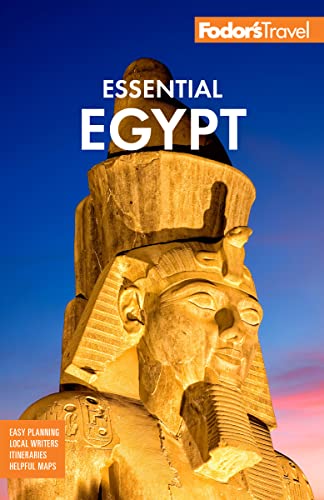Egyptian Cinema
Imagine Egypt. All right, now try to do it without your mind’s eye calling up Angela Lansbury ogling Karnak Temple’s ram-headed sphinxes in Death on the Nile, without Elizabeth Taylor enthroned with crook and flail in Cleopatra, without Brendan Fraser fending off a host of slimy foes—not to mention bugs—in The Mummy. It’s OK if you can’t. Those images have been around long enough to be part of our modern mythology of the place. But to really embrace a trip to Egypt, it’s good to expand your cinematic horizons. Here’s a cross-section of Egyptian movies that will help you better understand how Egyptians imagine themselves.
Destiny (Massir): This anti-fundamentalist musical historical drama—if you can imagine such a thing—by the late Youssef Chahine, one of Egypt's best-known directors, was one reason he was given a lifetime achievement award at Cannes, though the DVD from France is hard to find. Better still is Cairo Station (Bab al-Hadid) from 1958, an affecting story about people who sell drinks and newspapers on the platform of the main train station.
The Genie Lady (Afrita Hanem): Poor crooner Asfour (Farid al-Atrash) has just about given up hope of marrying the girl of his dreams; she’s the boss’s daughter at the theater where he sings. He thinks all his problems are solved when he finds a magic lamp. But the lamp’s beautiful genie (Samia Gamal) has romantic ideas of her own. This lighthearted 1949 classic is a showpiece for Atrash’s renowned musical talents—he was one of the most respected singers and oud players in the Arabic-speaking world—and Gamal’s graceful mastery of dance. And, like so many Egyptian films of its era, it delivers a feel-good moral to the story.
Hassan and Marcus: Unbeknownst to each other, a Coptic priest (Adel Imam) and an Islamic shopkeeper (Omar Sharif) must assume new identities in a witness-protection program. Each man, along with his family, is obliged to hide under the guise of the other religion. When the son of one man asks to marry the daughter of the other, their cover is blown, threatening the lives of both families and, judging from the ensuing neighborhood uproar, Egyptian society at large. Directed by Ramy Imam, this 2008 film drew fire from religious quarters for blasphemy.
Hello America (‘Alo Amreeka): Down on his luck, Egyptian everyman Bekheet (Adel Imam) wins the immigration lottery and is off to New York City, where everything that can go wrong, does. This 1998 comedy suffers from poor production quality; but its insightful, often poignant, contrasts between Egyptian and American moral values make it a must-see.
The Yacoubian Building (Omaret Yakobean): Half a century after the military coup that ousted the Egyptian monarchy, Cairo is mired in corruption and decline. Based on the novel by Alaa Al Aswany, the 2006 film tackles greed, deceit, economic prejudice, sexual hypocrisy, religious extremism, the illegal drug trade, and government corruption all at once, through the lives of those who reside in a single Cairo apartment building. Marwan Hamed directed the all-star cast in what is said to be Egypt’s highest-budgeted film, and one of its most controversial.




